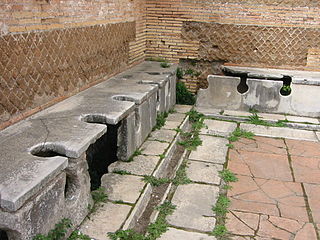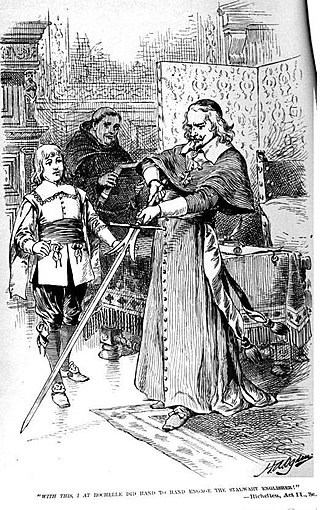Related Research Articles

Melancholia or melancholy is a concept found throughout ancient, medieval, and premodern medicine in Europe that describes a condition characterized by markedly depressed mood, bodily complaints, and sometimes hallucinations and delusions.

William Camden was an English antiquarian, historian, topographer, and herald, best known as author of Britannia, the first chorographical survey of the islands of Great Britain and Ireland, and the Annales, the first detailed historical account of the reign of Elizabeth I of England.

Robert Burton was an English author and fellow of Oxford University, known for his encyclopedic The Anatomy of Melancholy.

The Anatomy of Melancholy is a book by Robert Burton, first published in 1621, but republished five more times over the next seventeen years with massive alterations and expansions.

Paul Jordan-Smith was an American Universalist minister who also worked as a writer, lecturer and editor. Academically, he is regarded as one of the foremost authorities on the 17th-century British author and scholar Robert Burton. However, he is most well known for originating the hoax art movement Disumbrationism.

The Life and Opinions of Tristram Shandy, Gentleman, also known as Tristram Shandy, is a novel by Laurence Sterne, inspired by Don Quixote. It was published in nine volumes, the first two appearing in 1759, and seven others following over the next seven years. It purports to be a biography of the eponymous character. Its style is marked by digression, double entendre, and graphic devices. The first edition was printed by Ann Ward on Coney Street, York.
Polydore Vergil or Virgil, widely known as Polydore Vergil of Urbino, was an Italian humanist scholar, historian, priest and diplomat, who spent much of his life in England. He is particularly remembered for his works the Proverbiorum libellus (1498), a collection of Latin proverbs; De inventoribus rerum (1499), a history of discoveries and origins; and the Anglica Historia, an influential history of England. He has been dubbed the "Father of English History".

Philemon Holland was an English schoolmaster, physician and translator. He is known for the first English translations of several works by Livy, Pliny the Elder, and Plutarch, and also for translating William Camden's Britannia into English.

Crepitus is an alleged Roman god of flatulence created by Christians and used in their literature frequently as a fascinating subject to them. It is unlikely that Crepitus was ever actually worshipped. The only ancient source for the claim that such a god was ever worshipped comes from Christian satire. The name Crepitus standing alone would be an inadequate and unlikely name for such a god in Latin. The god appears, however, in a number of important works of French literature.

A phrase book or phrasebook is a collection of ready-made phrases, usually for a foreign language along with a translation, indexed and often in the form of questions and answers.
Lacrimae rerum is the Latin phrase for "tears of things." It derives from Book I, line 462 of the Aeneid, by Roman poet Virgil. Some recent quotations have included rerum lacrimae sunt or sunt lacrimae rerum meaning "there are tears of things."

"The pen is mightier than the sword" is an expression indicating that the written word is more effective than violence as a means of social or political change. This sentiment has been expressed with metaphorical contrasts of writing implements and weapons for thousands of years. The specific wording that "the pen is mightier than the sword" was first used by English author Edward Bulwer-Lytton in 1839.
"Call a spade a spade" is a figurative expression. It refers to calling something "as it is"—that is, by its right or proper name, without "beating about the bush", but rather speaking truthfully, frankly, and directly about a topic, even to the point of bluntness or rudeness, and even if the subject is considered coarse, impolite, or unpleasant.
Robert G. Clouse was an American religious academic who was a professor at Indiana State University, Terre Haute, Indiana.
The Galenic corpus is the collection of writings of Galen, a prominent Greek physician, surgeon and philosopher in the Roman Empire during the second century CE. Several of the works were written between 165–175 CE.

Landgravine Anna Sophia of Hesse-Darmstadt was a German noblewoman who reigned as a Princess-Abbess of Quedlinburg under the name Anna Sophia II.
Contemptus mundi, the "contempt of the world" and worldly concerns, is a theme in the intellectual life of both Classical Antiquity and of Christianity, both in its mystical vein and its ambivalence towards secular life, that figures largely in the Western world's history of ideas. In inculcating a turn of mind that would lead to a state of serenity untrammeled by distracting material appetites and feverish emotional connections, which the Greek philosophers called ataraxia, it drew upon the assumptions of Stoicism and a neoplatonism that was distrustful of deceptive and spurious appearances. In the familiar rhetorical polarity in Hellenic philosophy between the active and the contemplative life, which Christians, who expressly rejected "the World, the Flesh and the Devil", might exemplify as the way of Martha and the way of Mary, contemptus mundi assumed that only the contemplative life was of lasting value and the world an empty shell, a vanity.
Drogo de la Bouerer was a Flemish associate of William the Conqueror, who was rewarded after the conquest with a large grant of land in northern and eastern England, primarily in Holderness, where he built Skipsea Castle.
References
- ↑ Camden, William (1607). "Britannia". The Philological Museum. Retrieved 11 May 2019.
- ↑ Burton, Robert (1621). The Anatomy of Melancholy, What it is: With all the Kinds, Causes, Symptomes, Prognostickes, and Several Cures of it. In Three Maine Partitions with their several Sections, Members, and Subsections. Philosophically, Medicinally, Historically, Opened and Cut Up. Archived from the original on 2012-05-26. Retrieved 2010-09-09.
- ↑ Benjamin, Walter (1968). Illuminations . New York: Shocken Books. p. 61. ISBN 0-8052-0241-2.
- ↑ "Contact | DEFCAD". defcad.com. Retrieved 2022-04-12.